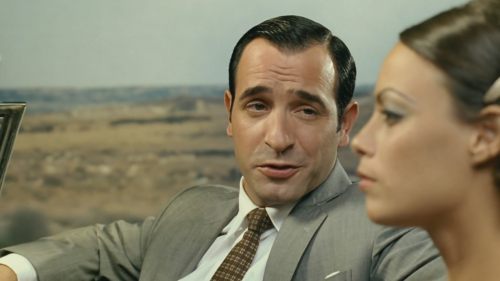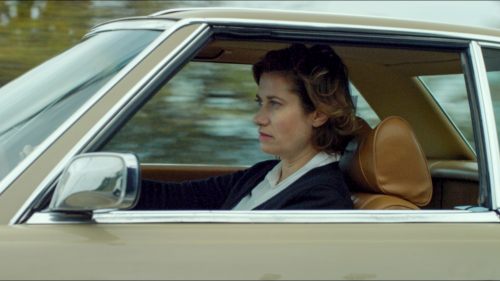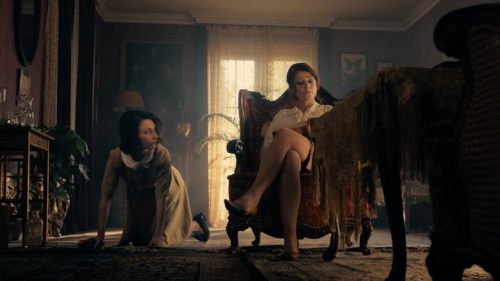MUBI Movies: OPERA (1987)
MUBI is a streaming service catering to cinephiles who believe in quality over quantity. Each day, MUBI adds a new film to its library, where it will stay for 30 days, after which it circulates out and gives room for another new entry. Throughout 2019, we will highlight one MUBI movie per month to help illustrate the catalog’s breadth and importance.
Cinema has given us a variety of interpretations and reinterpretations of Phantom of the Opera, though few could likely be considered as radical as Dario Argento’s Opera, or, as it was titled in the United States, Terror at the Opera. The archetypal beats of a young opera star lusted after by a mysterious man hiding behind the scenes are still the basis for Argento’s take on the material, but the film spins off into its own idiosyncrasies, becoming a giallo slasher that is less concerned with the theatricality of opera than it is with the brutal spectacle of murder and mystery. It’s a distinctly Argento production, arguably just as inspired by his own experiences in failing to stage an opera of his own as it is by Phantom of the Opera. And it’s wholly underappreciated among the slashers of its time.
The film opens with the prima donna star of an opera production of Macbeth as she is hit by a car and left unable to perform. Her understudy Betty (Cristina Marsillach) is promoted to the lead role, but during her opening night performance, a light fixture comes crashing from a balcony and an usher is found murdered, impaled on a coat hook. She spends the night with her boyfriend, but a masked man breaks into his apartment and ties Betty up. He gags her mouth and tapes a row of needles beneath her eyes, forcing her to watch what happens next lest she impale herself by blinking. The masked man murders her boyfriend, then unties her and flees. Betty holds off on contacting the police, though, because she remembers this same masked murderer from years prior; he was the man who killed her mother.
Like any true version of Phantom, Argento’s Opera is a tale of obsession, though the identity of the masked killer is purposely obscured until the third act, lending the story a murder mystery element which complements how we watch the violence unfold. It’s an unapologetically self-aggrandizing take, since Argento portrays the play’s director (Ian Charleson as an obvious stand-in for Argento himself) as Betty’s most competent and steadfast ally with egotistic bluntness. It’s a film that is playing with the tropes of a beloved narrative to tell a tale more lurid and immediately visceral, stripping away the pretense of melodrama in favor of violence which the film insists you cannot look away from.
And like any good slasher film, Opera delivers on the violence. The needles placed under Betty’s eyes are instantly iconic, so much so that the film cannot resist using the device more than once, placing us in a position where we have to watch Betty squirm as she cries bloody tears while witnessing the murder of her loved ones. And then it shows us those murders in upsetting human detail: stabbing through the lower jaw, impaling and disembowelment, a gunshot wound to the eye, and a vicious attack by a flock of ravens resulting in an eye being plucked out, just in case the amount of violence to eyeballs wasn’t enough for you. These moments punctuate tense scenes of slow build-up as we watch from the murderer’s perspective, making the audience unwilling passengers in the body of a man whose violent intentions only become clear once they are executed.
Opera does eventually loop back around to the melodrama of its inspiration, but it does so in a manner that is almost self-reflexive, using the identity of the killer as a way to examine our relationship with art, artists, and our own appreciation thereof. It’s easily one of Argento’s most accessible films, and it fits right at home with the slasher genre, if for nothing else than its eye-needle gimmick. Sure, Halloween was yesterday, but any time of year is appropriate for a night at the opera.



